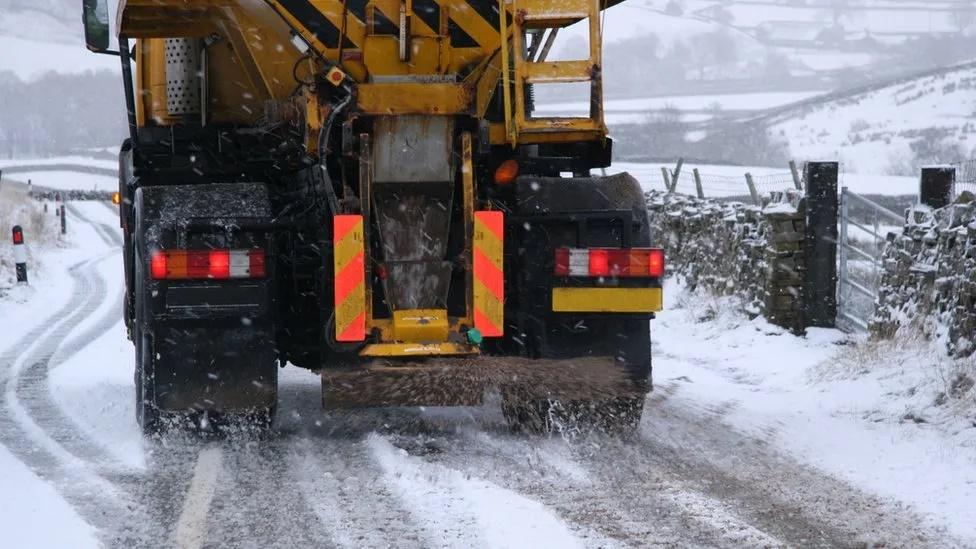Public sector strike: 'Why is Northern Ireland the poor neighbour?'
- Published

Unions have billed action on Thursday as the biggest strike in Northern Ireland's history
Mass strike action on Thursday will see tens of thousands of public sector workers take to picket lines across Northern Ireland.
Teachers, civil servants and nurses are just some of those walking out over pay and conditions.
It is the biggest strike in Northern Ireland for many years, with Northern Ireland Secretary Chris Heaton-Harris coming under pressure to tackle the pay dispute in the absence of a Stormont Executive.
Mr Heaton-Harris has said he has no legal authority to join pay negotiations and that it is a matter for a functioning power-sharing executive to address.
But the frustration of workers has been growing and BBC News NI has spoken to several of them about why they are hitting the picket lines.

The nurse: Kerry French
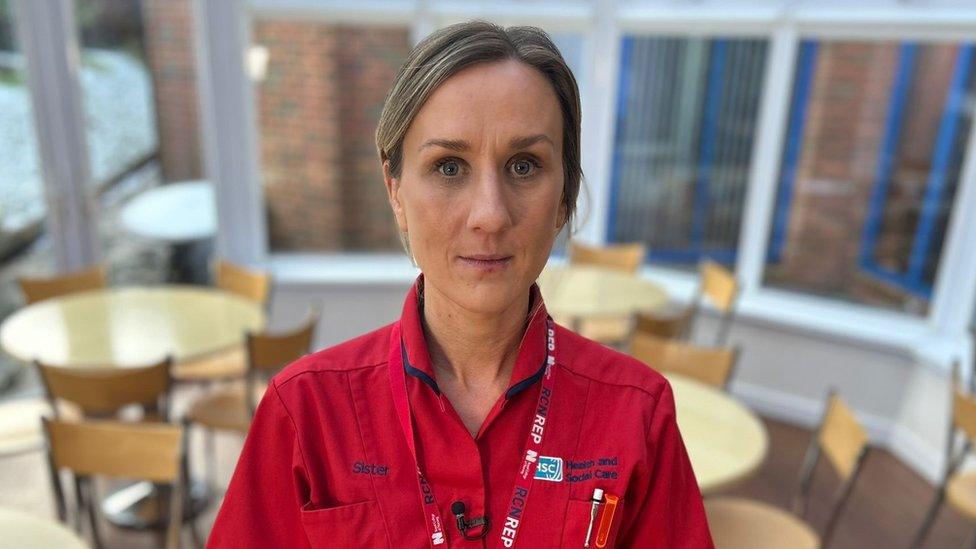
District Nursing Sister Kerry French has been a nurse for 10 years
"I don't know if I can keep doing this job for another 20 years, the way things are," Ms French said.
"I feel angry and frustrated. At the end of the day, the money is there and we should be being paid it.
"Why should we in Northern Ireland be paid less than our counterparts in England for doing the same job, and looking after the same patients on a daily basis?
"To hear that there is money sitting there, and that we're being deprived of it is just completely immoral. It's disgusting."
Ms French had a message for members of the public impacted by the strike: "Please support the nurses.
"We're here striking for our patients and people might think we're making the patients suffer on strike day, but there's 364 other days in the year where we're short-staffed.
"It's the government that needs to sort things out here, not the nurses."

The teachers: Ronan Sharkey and Rebekah Mitchell

Ronan Sharkey is a teacher at St Ronan's College in Lurgan
"We are facing a massive recruitment and retention crisis. Nobody wants to be a teacher anymore," Mr Sharkey said.
"There was a time when becoming a teacher was such a massive achievement, it was an aspirational role to have. We want to bring that back."
Mr Sharkey said teachers in Northern Ireland want pay parity with educators in other parts of the United Kingdom.
"A beginning teacher's wage in Northern Ireland is £24,137 and that's before deductions," he said.
"My counterparts in education are looking teachers in England - wondering why a teacher there is worth £5,500 more.
"Why is a teacher in Scotland worth approximately £8,500 more?
"We feel very undervalued, we feel very sad and we feel neglected."
Mr Sharkey said he is considered leaving Northern Ireland to teach elsewhere for a higher salary, and even leaving the sector entirely.
"I have to consider taking my skills elsewhere. Just to help me be financially sustainable and live.
"If I have to do that, it will be a sad day," he said.

Rebekah Mitchell said the quality of children's education is a big reason why she is going on strike
Ms Mitchell, a geography teacher at Lisneal College, said that no teacher wants to strike "but we feel we have to".
"We love our job, we love our kids and that's why we are doing it."
Ms Mitchell said that the cost-of-living crisis is hitting her and her colleagues extremely hard.
"We are not being paid in line with inflation, we are not being paid the same as the UK, so teachers in Scotland are actually paid more than us," she said.
Ms Mitchell, who qualified as a teacher five years ago, said the focus of the strike has to be on the children in the classrooms right across Northern Ireland.
"Our kids are coming into school, coming into an underfunded and under-resourced classroom and it is affecting their education."
Ms Mitchell also called on politicians to get their act together and for power sharing to be restored at Stormont.
"They need to come together, they need to get to work and they need to help us," she said.
"It's our children, it's our teachers, and, you know what, it is your children, your grandchildren and it's their future that's being affected."
The classroom assistant: Abigail Davies-Phillips

Abigail Davies-Phillip said her teenage son earns more than her in a fast food restaurant
The classroom assistant, who works with children with special educational needs in County Antrim, previously did the same job in England - but is paid much less in Northern Ireland.
"We look after the most vulnerable of society, and our wage does not represent that at all.
"The reality that at the age of 16/17 my son can earn the same or more than me by working in fast food restaurants or in supermarkets - just makes you wonder where the priorities are.
"I'd like to see equity across the nations. Why should Northern Ireland be the poor neighbour by comparison? I don't see the justification in the lower pay."
Ms Davies-Phillips said the decision to strike was "really tough".
"I adore my job so much that any strike action does come as a very hard choice to make," she said.
"The money is literally sitting there waiting so it does make myself and others feel like we're pawns in a game of politics which is unfair.
"It's disadvantaging us for reasons that are outside our control."

The married Translink workers: Michelle and Eddie Melaugh

Michelle and Eddie Melaugh will both be taking part in strike action on Thursday
Michelle, a bus driver for 18 years, and Eddie, who has worked for Translink for 17 years, have three children together.
But, they say, it's a financial struggle with the cost-of-living crisis and they need a pay rise.
"Everything is just going up, everything is getting too expensive, we can't afford things anymore and it's really difficult," Mrs Melaugh said.
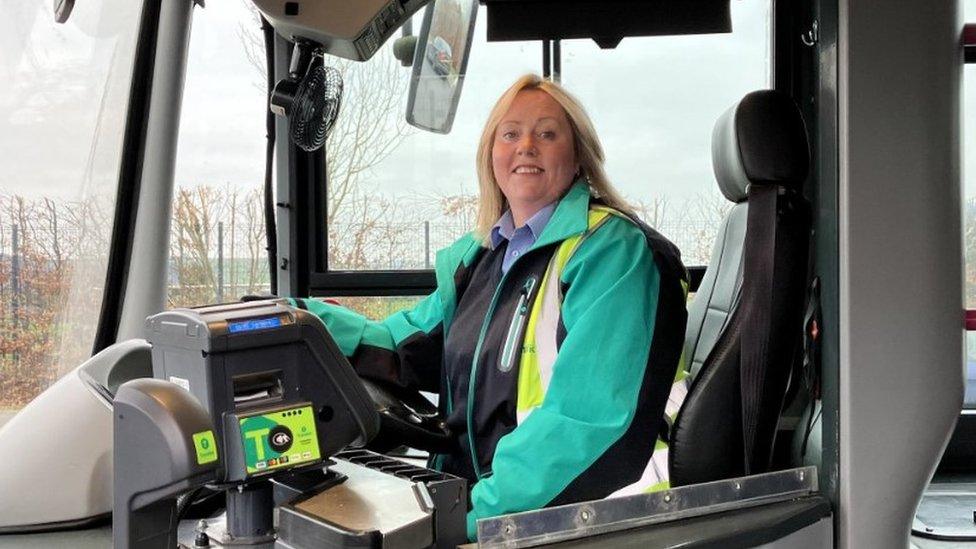
Michelle Melaugh says the cost-of-living crisis is really impacting transport workers
"I'm under pressure big time because my youngest boy is looking to go away on school trips and he needs this, that and the other - and you just can't afford to get it anymore."
The couple, who already took part in strike action back in December, said they hope something changes soon and they can get back to work.
"We'd rather be at our work because we lose money when we are not at our work, but something has to be done," Mrs Melaugh said.
"It's been going on now far too long, we need the pay rise."

The roads service worker: Mark McIvor
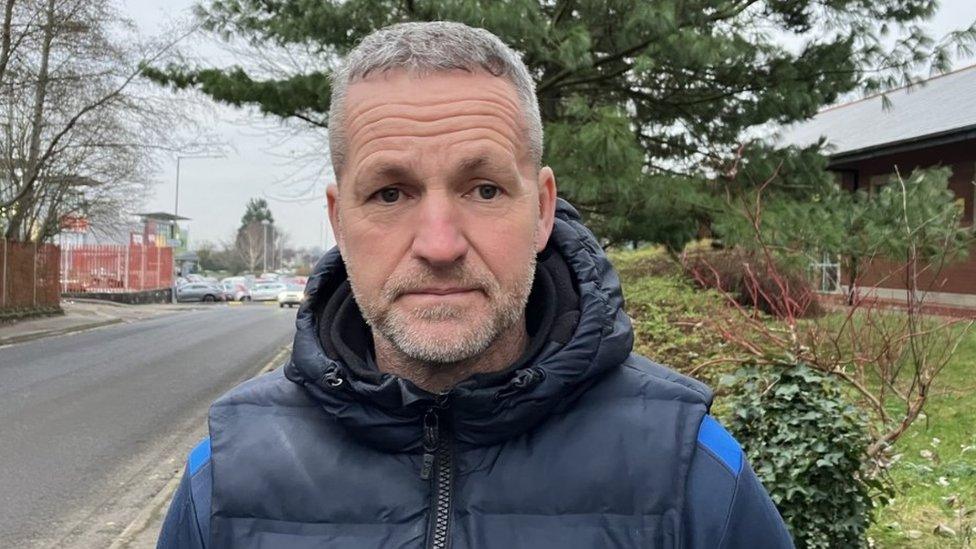
Mark McIvor is a father-of-three and said a pay rise is needed to help people provide for their families
Mark McIvor said he and his colleagues at the Waterside Roads Service Depot in Derry are going on strike to see working conditions radically changed to meet the challenges of modern-day living.
Mr McIvor primarily fixes potholes in his role, while many of his colleagues would operate gritters.
Members of two unions who operate gritters on Northern Ireland roads will be taking week-long strike action from Thursday.
It comes as Northern Ireland braces for a period of very cold weather, with a snow warning for the middle of the week.
"For us it's about the money, we haven't had a decent pay rise in probably five or six years," Mr McIvor said.
"We're minimum wage workers, we've men working for £330 pounds - that's what you take home with you every week and people just can't survive on that."
Mr McIvor said he knows of some who have had to take on second and third jobs in order to make ends meet.
"We're out fixing roads every day, fixing pot holes and it's a vital part of the economy," he said.
"Men are out at all hours of the morning gritting and sometimes that can be three, four, five, six - could be seven days in a row before they get a break."
Mr McIvor said no one wants to be on the picket line, but that they are determined to stay there "for as long as it takes".
"We need the money for our families and we just can't carry on."

More on strikes in Northern Ireland
Related topics
- Published10 January 2024
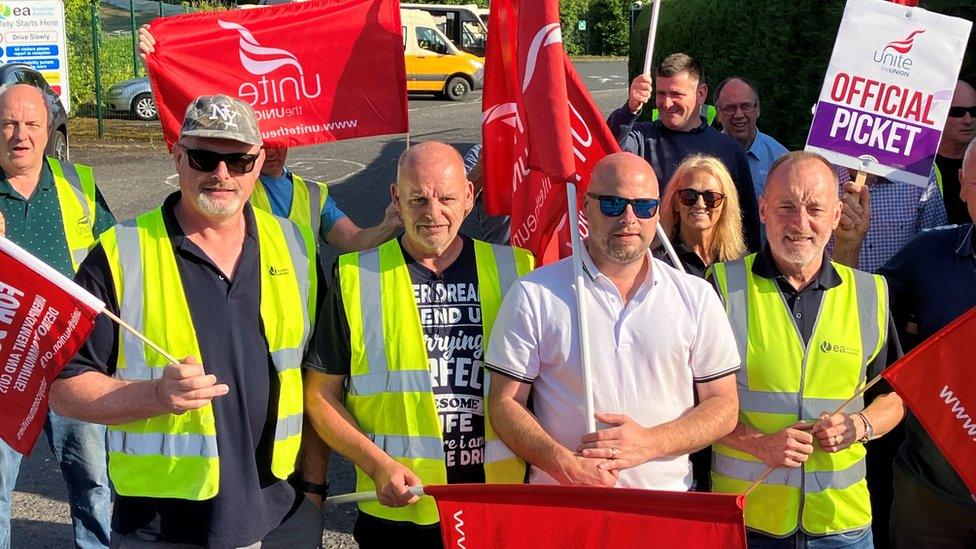
- Published15 January 2024
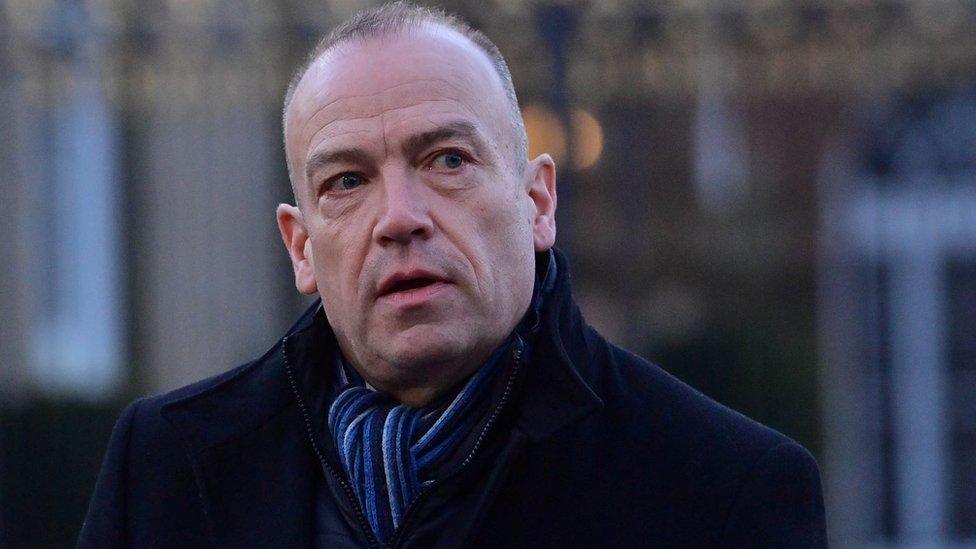
- Published22 December 2023
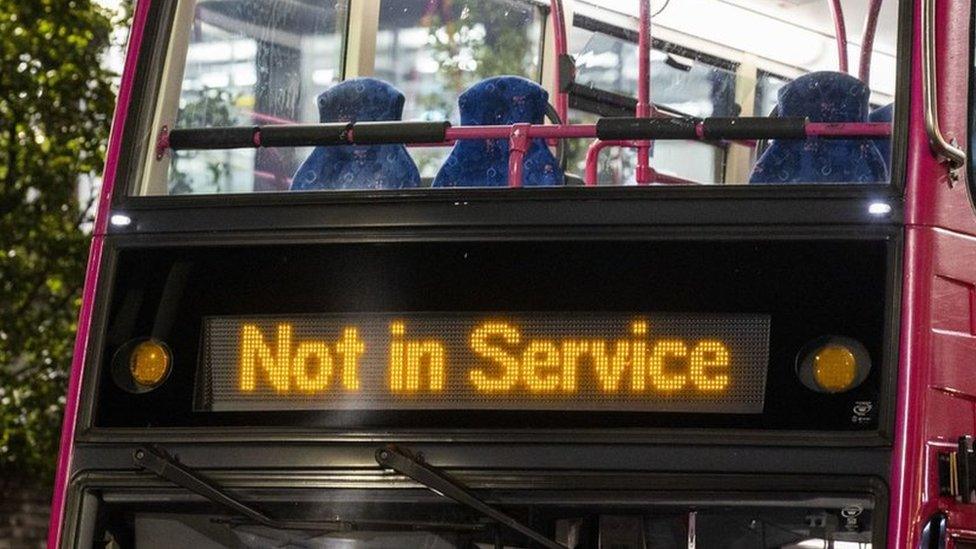
- Published15 January 2024

- Published17 January 2024
